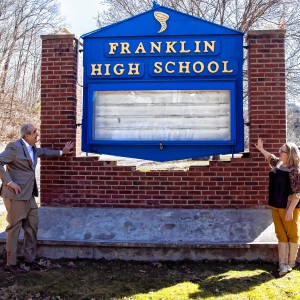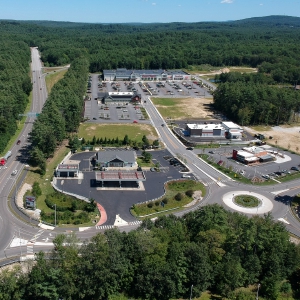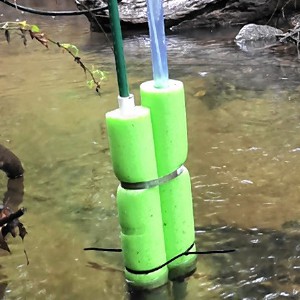Vintage Views: The Concord Menagerie
| Published: 01-07-2023 4:15 PM |
When my grandfather’s grandfather walked the cobbled streets of Concord over two hundred years ago, he did not walk alone. Concord was known as Rumford then and destined for a bright future. Our little town was at a crossroads and it was soon established as a place to rest for the night, acquire a good meal and embrace the feeling of safety with like minded people. Concord being located somewhat in the middle of the state provided transportation along the Merrimack River, in time the stagecoach lines established themselves here and eventually the trains did too. People followed in search of employment and a life with opportunities, the granite industry was established and commerce was established further. Immigration brought many additional people and our town really started to look like a town, not an outpost on the frontier. No, grandfather did not walk alone as he navigated the cobbled streets here, he walked with many interesting characters. Grandfather walked with oxen, cows, pigs, sheep, dogs and so many additional four-legged friends. Animals provided labor, food and certainly companionship, but the town fathers were hearing complaints, and those complaints would indeed be addressed.
During the year 1739 the people spoke and the authorities listened. At that time Concord was known as Rumford and the good people of Rumford decided to vote a local gentleman into the prestigious position of Pound Keeper. The pound keeping business could actually be lucrative at times and the official Pound Keeper was compensated for his efforts. The elected Rumford Pound Keeper in 1739 was Nathaniel Abbott. Nathaniel would be summoned when a wayward animal did stray. Most likely those cows, pigs and sheep kept our friend Nathaniel Abbott quite busy over 200 years ago. When he detained one of his unruly subjects, he would place the animal in the Rumford Town Pound until the rightful owner eventually came to bring him home. The owner would have to pay a shilling or two to Nathaniel Abbott for his troubles and only then was the animal allowed to leave the Town Pound enclosure.
It is interesting to note the original location of the Rumford Town Pound was not far from our present-day Main Street. The first pound was located on Pond Hill, the bluff at the north end of Main Street that overlooked Horseshoe Pond. This area was a beautiful little piece of land situated on a nice sandy bluff overlooking the pond, sadly it met its demise in the face of progress. The Concord & Claremont Railroad came to town and tracks were needed for the trains. We lost our little Pond Hill to the railroad, the sand and gravel used as a solid base for railroad track construction a little at a time until Pond Hill was simply no more. Nathaniel Abbott spent hours on Pond Hill where he herded the stray animals into his early enclosure for safe keeping and a tidy little profit.
The process of managing the stray animals was not simply a process during the 1700s, it did spill into the 1800s when the management became a bit relaxed, too relaxed for this city we call our state capital. Visiting politicians were somewhat annoyed at times when they walked the State House yard in the company of a grazing sheep or overly friendly swine. Perhaps it was simply a sense of pride in 1812 that motivated the people to again renew their quest to contain and manage the wandering animals freely walking the streets of Concord. The main street area was the primary focus and another order was posted stating “for every swine found running at large, at any season in the Main Street between John Bradley’s and John Colby’s, the owner will be liable for some penalty”. John Colby lived to the southern area of our present-day Main Street while John Bradley lived in the north end of town. A year later this provision was extended over the entire length of road from the Concord Bridge to the Boscawen Bridge, our present-day Penacook. A penalty of 25 cents was also added to this provision to further encourage our citizens to keep their animals off the streets when not yoked, harnessed or managed properly.
It was just four years later in 1816 that additional provisions stated “the ranging of swine from the first day of April to the first day of November was prohibited over an area extending from the Merrimack to a line half a mile west of the Main Street and it’s extension, between the line of Wood’s Brook Bridge on the north, and the town line on the south; also, over the common within one mile of Federal Bridge on the east side of the river”. This provision simply eliminated every friendly animal from our Main Street and beyond during the months between April and November.
Our ancestors certainly continued to manage their animals to avoid fines, the pound keeper and local law enforcement. People were viewed as irresponsible if they let their flock wander aimlessly and in time animals simply remained behind fences on the many local farms within the city limits.
In time our ancestors accepted the fact that their rural town was becoming urban. People were very pleased to see the new trend that brought traveling circuses to our community along with their large assortment of animals, animals that many of our citizens had never seen before. There were lions, tigers, giraffes and many more. The circus would set up in town and coerce the people to visit with their families, but this too eventually fell under the wheels of progress over 100 years ago when there was an incident involving a couple of escaped buffalos.
The circus was informed they needed to set up on the outskirts of town, not on the town common areas. A lot was established toward the town line with Bow in the south end of Concord and the people arrived in great numbers. As two large buffalos were being herded, they broke free and trotted at a great speed, remembered as a stampede in fact. They traveled up South Street past the present-day Concord City Hall, turned left onto Center Street in time passing our present-day Concord High School. The police were in pursuit as well as many local farmers, the entertainment was embraced warmly by the children along the streets. As the Concord buffalo stampede turned left onto Fruit Street a local farmer working in the fruit orchard on the grounds of the current Memorial Field witnessed the two buffalo heading into his orchard with the police and half the children of Concord in hot pursuit. He closed his back barn door, opened his front barn door and herded the two buffalos into his barn, closing the doors behind them.
Article continues after...
Yesterday's Most Read Articles
 Former Franklin High assistant principal Bill Athanas is making a gift to his former school
Former Franklin High assistant principal Bill Athanas is making a gift to his former school
 Another Chipotle coming to Concord
Another Chipotle coming to Concord
 Hometown Hero: Quilters, sewers grateful for couple continuing ‘treasured’ business
Hometown Hero: Quilters, sewers grateful for couple continuing ‘treasured’ business
 FAFSA fiasco hits New Hampshire college goers and universities hard
FAFSA fiasco hits New Hampshire college goers and universities hard
 Opinion: New Hampshire, it’s time to drive into the future
Opinion: New Hampshire, it’s time to drive into the future
As I walk our Main Street this day with my small Coton de Tulear canine named Basil I recall the early free-range days of Concord and the wild buffalo that stampeded down our streets. Unimaginable amusement from the days of long ago. No longer forgotten.
]]>

 Kearsarge Middle School drone team headed to West Virginia competition
Kearsarge Middle School drone team headed to West Virginia competition Phenix Hall, Christ the King food pantry, rail trail on Concord planning board’s agenda
Phenix Hall, Christ the King food pantry, rail trail on Concord planning board’s agenda Granite Geek: Forest streams are so pretty; too bad they’re such a pain to measure
Granite Geek: Forest streams are so pretty; too bad they’re such a pain to measure Vandals key cars outside NHGOP event at Concord High; attendee carrying gun draws heat from school board
Vandals key cars outside NHGOP event at Concord High; attendee carrying gun draws heat from school board
